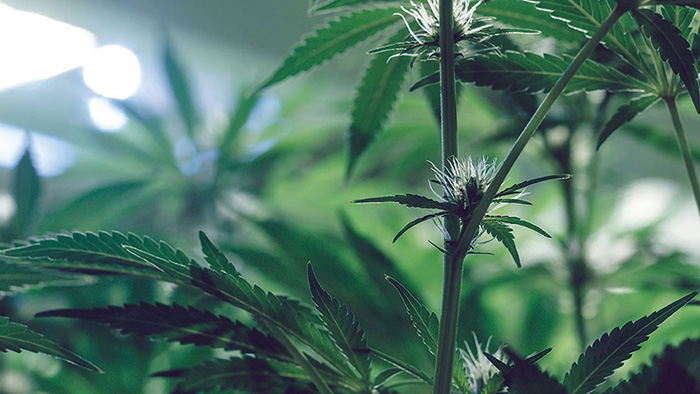Though hindered by government prohibitions, research is showing that cannabis eases the pain
When it comes to the health effects of cannabis, both positive and negative, everyone’s still largely in the dark. That’s mainly thanks to the fact that researchers were essentially banned for decades from studying the effects of pot due to its illegality. Things have opened up a bit in recent years, thanks to weed being legalized at least for medical purposes in a majority of states, but there’s still a lot of catching up to do. What is known is still dwarfed by what isn’t known.
Health claims run the gamut and come from both prohibitionists and crazed, pro-pot zealots alike: Cannabis causes cancer, cannabis cures cancer; cannabis makes one stupid and lazy, cannabis enables creative genius. Etc.
In terms of the ameliorative effects of weed, a small handful of facts are known with certainty. The anti-seizure properties of the plant are so well-established that the Food and Drug Administration in 2018 approved a cannabis-derived medication, Epidiolex (basically CBD), to treat seizures caused by a couple of rare forms of epilepsy. That’s far from a wholesale endorsement of pot as medicine (there are strong indications that cannabis might ease many different kinds of seizures), but it was still a remarkable development.
It’s also pretty certain that weed has a strong antiemetic effect: It relieves nausea for many people, and has for many years been prescribed to cancer patients undergoing chemotherapy.
From there, the levels of certainty start to drop off pretty fast, and all that is really known, so far, is what pot “might” or “seems to” do for people. But a major field of research is getting ever closer to certainty, that is on the pain-relieving effects of weed.
In the most general sense, those effects are quite clear. There’s a gigantic pile of anecdotal evidence that people with chronic pain issues find relief from cannabis. Lots of people swear they have gotten themselves off opioids by using cannabis (which might help with withdrawal symptoms while also relieving the underlying pain). The research so far backs this up.
It’s just that much more research is needed before it’s known for sure which specific types of pain cannabis is effective for, and what combinations of THC, CBD and other elements of the pot plant are best to address which particular ailments.
New research published by JAMA Network Open shows that, whatever uncertainty still exists, lots of people with chronic pain are using cannabis to relieve it, and to either avoid using opioids or to get themselves off them.
Still, the researchers prefaced their note with this caveat highlighting the nascent nature of the science: “Evidence is mixed about whether medical cannabis serves as a substitute for prescription opioids or other pain treatments. Accurate estimates of cannabis use or its substitution in place of pain treatments among adults with chronic noncancer pain are, to our knowledge, not available.”
Nevertheless, the researchers from the University of Michigan and Johns Hopkins University determined that nearly a third of all people with chronic pain are using cannabis to relieve it, and that many of them are using it specifically to avoid the use of opioids. However “mixed” the evidence might be overall, those people obviously think weed works for them.
The researchers surveyed 1,724 adults with chronic pain conditions who lived in states with medical-marijuana programs. Of those, 31% said they used cannabis for relief. That might not sound like a lot, but consider that cannabis as a medical treatment is still novel for many people, and that older people are more likely to suffer from chronic pain, and are also generally less open to using cannabis.
While researchers, out of an abundance of caution, insert caveats like the one in that study, the National Academy of Sciences, Engineering, and Medicine published a major report on the health effects of weed in 2017, concluding that the evidence was “conclusive or substantial” that cannabis is effective in treating chronic pain.
And in fact the academy went so far as to slam the federal government for maintaining so many barriers to cannabis research, and for maintaining pot’s designation as an illegal controlled substance: “This lack of aggregated knowledge is a significant impediment not only to the scientific understanding of cannabis but also to the advancement of public policy and the nation’s overall public health.”








